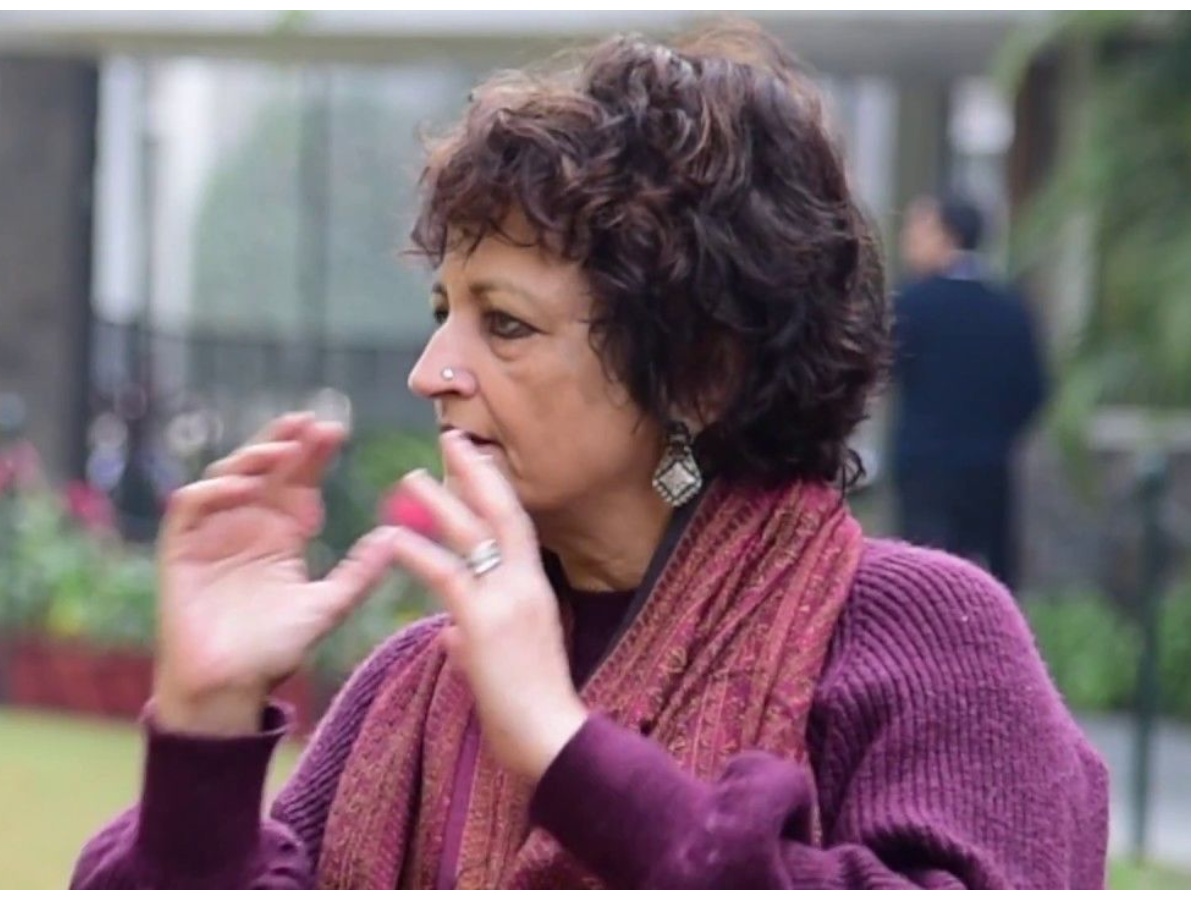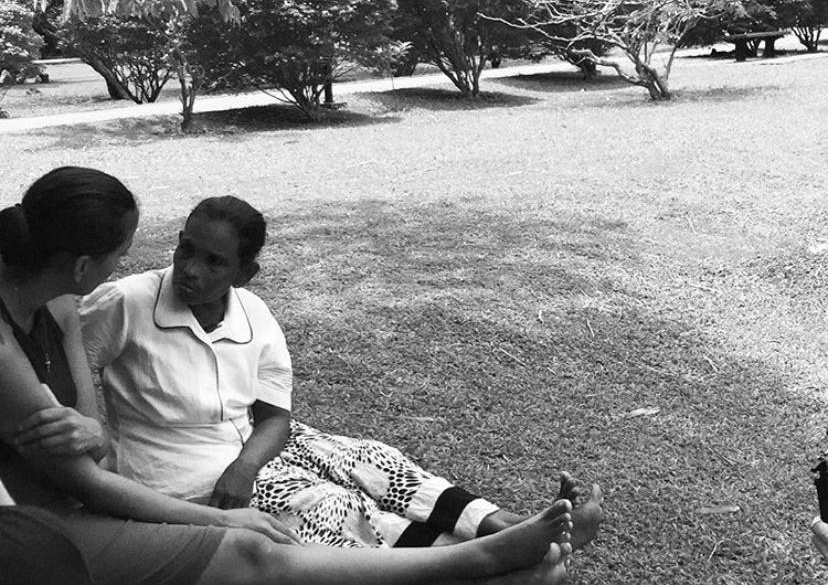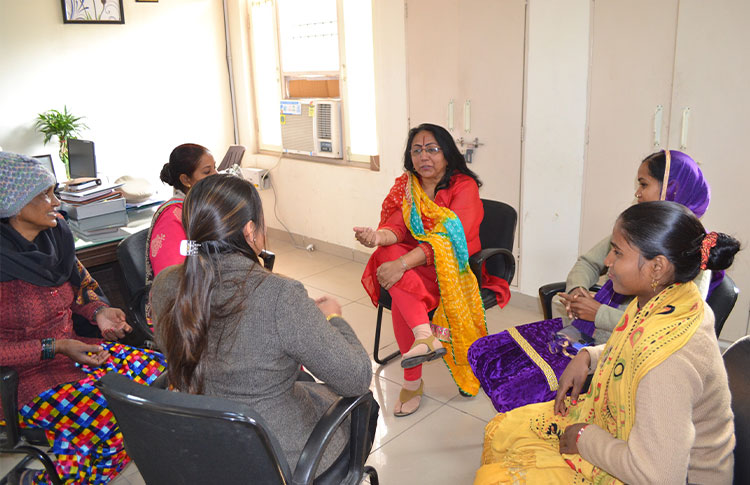Once Sold Into Prostitution, These Girls Became Lawyers To Bring Justice To Others Like Them
- IWB Post
- August 17, 2019

Survivors of the crime of Commercial Exploitation of Children (CEC) are today aiming to become top-notch lawyers. They have different stories. Some were child brides sold into prostitution by their husbands, some were sent away by their families as domestic helps into unknown houses.
But they all seem to have one thing in common, the one thing that pushes them to aim for the best.
They want justice.
They want to study law to become public prosecutors to stop crimes against our girls. They are backed by the School for Justice. This is no ordinary school. They’ve collaborated with the top law colleges in the country. I spoke over the phone with their incredible and candid Francis Gracias, the CEO of Free a Girl Movement India.
How distressful is the picture of the Commercial Exploitation of Children in India?
Francis Gracias: There’s this study by ECPAT which was conducted in 2014 that tells us how 1.2 million children are the yearly survivors of this crime in South Asia. And the strangest thing is that the number is increasing year after year! But there’s only a fractional number that gets reported. In 2014, there were 3345 cases reported out of which only 384 went to court. Of the 384, there is a minuscule 10%-14% conviction rate. Would you believe that?
There’s no fear of this crime. When this negligible punishment is doled out, impunity develops around the crime. Had there been more cases and convictions, there would’ve been more distress in the criminals. Unfortunately, that doesn’t exist currently.
When it comes to convictions, enforcement of the law is the problem. Laws like the POCSO, ITPA are in place, but their implementation is not good. Sometimes it is due to the lack of will of the police, sometimes it is the genuine lack of resources.
Can you explain it with an example?
Francis Gracias: There are these specialized units that are supposed to be deployed in each district called Anti-Human-Trafficking Units. On paper, they are supposed to be cracking down on Human Trafficking – but they are not funded or well-equipped. To further reduce their specialty, they are given regular cases, too. In many districts, they aren’t deployed at all!
Thankfully, they do exist in major urban centers, but there, they have to deal with political pressure.
Infrastructure dedicated to CEC is in very bad shape. There is an immense lack of resources, a backlog of pending cases, overburdened authorities and a lack of specialized courts.
Did you have to face risks and threats as you challenge this massive trafficking and prostitution mafia?
Francis Gracias: In my early days, before I founded the School of Justice, I did. Especially when I was involved in the ground investigation, when I visited the Red Light areas I ruffled a lot of feathers. I had to act as a whistleblower against their owners and I got into some trouble.
But I, sort of, was aware of the consequences of what I was doing. I knew that usually when I was intimidated, it was an empty threat. They couldn’t attack men, they could only try and scare me. And that wasn’t going to work.
Thankfully, since we’ve founded the School of Justice, I’ve never faced any threats. But, I am sure as we enroll more girls and make a lot of noise; we’re going to get into all sorts of troubles.
The stories of the survivors are just heartbreaking. Tell us about the trauma the girls are going through and how they are dealing with it?
Francis Gracias: Well, the good part with the School of Justice is that most of the girls we’re working with had been rehabilitated. Especially, since we’ve been providing them education and vocational skills, they are looking forward to the future. Trauma is usually the most intense during two stages. One is during the rescue operation and the other is during the trial.
The girls with us are very positive in their outlook, but they still have a hankering for justice. That is why they are so passionate about wanting to be a part of the solution. They want to help other victims. The system has failed them but instead of being repulsed by it, they are actively working to become a part of it and amend it.
Tell us a little about how the classes for the survivors work. Are these like regular college classes or are they special classes?
Francis Gracias: We wish to enroll them in regular classes at good colleges. Now see, they come from different backgrounds. Some, we help to appear for the CLAT exam (Common Law Admission Test), while some we encourage to pursue University exams. CLAT is a little more challenging because there’s a lot of time required to prepare for it. Those who cannot clear CLAT are admitted to the Law Department of State Universities.
I sit down with our Law experts from across the country to map the skills of each girl. Then we talk to the Law Colleges and tell them, “Our girl has cleared your entrance test. But she’s a survivor of Child Prostitution and we want to partner with you to get her a good education.”
How do you meet these girls? What is the process for enrollment?
Francis Gracias: Currently, there is a problem with funding so we have to stick to a strict filtration process. We scout our children at protective homes and shelter houses. We work with their probation officers and counselors. We spend a lot of time counseling them, guiding them through the entire process and ensuring they really want to pursue this.
We’ll certainly expand the filtration process as time passes by. Right now the lack of funding restricts us quite a bit.
The identity of girls has been revealed on the website. Are you sure that doesn’t pose a threat to the safety of the girls?
Francis Gracias: That’s a great question and many people are concerned about this. See, we’re a bold initiative that way. The whole point is to dismantle the stigma that the survivors face. However, we’re only revealing their identities with their consent. We talked to them for hours and made sure they were as onboard with this as we were. And, they were! I remember what one of the girls told me.
She said, “I’ve gone through so much already that this (identity revelation) doesn’t bother me.”
But, hasn’t revealing the identity opened up the girls to an array of discrimination in a society that often considers them accomplices in the crime.
Francis Gracias: Oh, we’re certainly endeavoring to inform the society on the whole against this perception. Many people see these women as prostitutes who did this willingly. They aren’t seeing them as survivors of a crime that happened against them. Leave teachers, the police themselves aren’t sensitized enough. One Hawaldar, that we were trying to work with, called them prostitutes right to our faces. So we’re working with Police officers, Lawyers, Judges, and others to try and change their opinions. Bring about more acceptance for these brave girls.
Is there any sensitization program designed for the teachers and professors?
Francis Gracias: Now as the first batch is getting into colleges, we’ve started talking to the administration. We negotiate with them and sensitize them towards the struggle of our girls. We’re increasing their awareness about the risks that they face but also trying to encourage them to be a part of the revolution. We want them to support our girls a little more.
Do you think families are often inadvertently involved in this crime? If so, how can the awareness be increased?
Francis Gracias: That certainly seems to be the case. In our first class itself, 50-60% of the girls were sold by their immediate family. They either personally sold them off or colluded with criminals. In many cases, the girls are married at a young age and then sold off by their husbands. So, these girls want absolutely nothing to do with their old family.
In around 40% of the cases where the family is innocent, we try to contact them and reconcile. In that case, we involve the family in our School of Justice, too. We tell them everything and work with them to educate the girls.
The School of Justice boldly shows you the faces behind numbers and statistics. When we hear that 12 lakh children are being sold into prostitution every year in India, it is scary. But when we hear the individual stories of the girls from the school, it becomes much scarier. These girls are working hard to someday become public prosecutors to serve a society that wronged them. We salute both the spirit of life of the girls and the foundation that Gracias’ School for Justice provides them.
If you want to support the School for Justice, click here.
(This article was first published on May 4, 2017.)
- 0
- 0













